Job Energy

How do climate goals affect the economy and job market ?
Climate goals, aiming to reduce greenhouse gas emissions and promote renewable energy sources, significantly impact the economy and job market. The growth of the renewable energy sector creates new business opportunities and jobs, while carbon pricing mechanisms incentivize companies to invest in cleaner technologies. Green infrastructure investments stimulate economic growth by creating jobs and improving public health. However, achieving climate goals can also displace workers in fossil fuel-dependent industries, necessitating support and training programs for transitioning into new roles within the green economy. Education and training focused on sustainability and renewable energy are crucial to meet the demands of the changing job market. Overall, prioritizing climate goals presents challenges but also offers numerous opportunities for economic growth and job creation in industries related to sustainability practices.
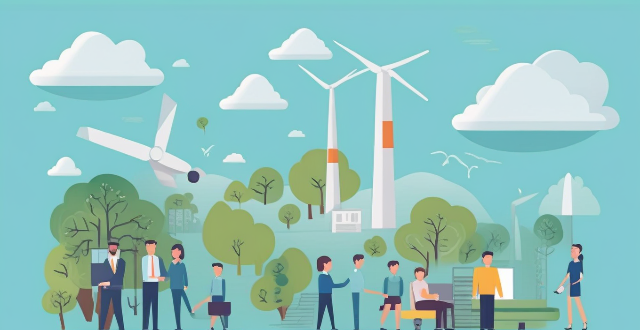
How has the Clean Energy Revolution affected the job market ?
The clean energy revolution has created new job opportunities across various sectors, including solar, wind, geothermal, hydropower, and bioenergy. The industry requires specialized skills in engineering, manufacturing, maintenance, sales, marketing, policy analysis, and advocacy. The clean energy revolution has also transformed existing industries by integrating renewable energy sources into their operations. The shift towards renewable energy sources is expected to continue, requiring individuals to acquire the necessary skills and knowledge to thrive in this rapidly evolving landscape.
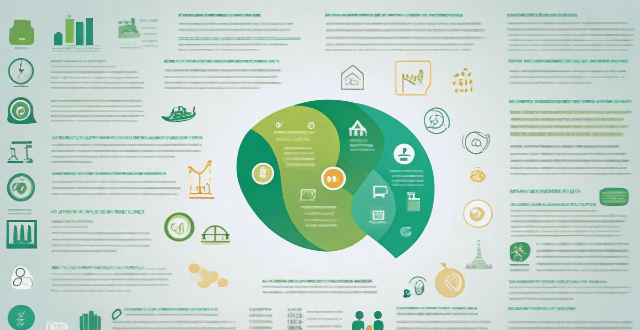
How will climate change influence future job markets ?
The article discusses how climate change will influence future job markets. It highlights the increased demand for green jobs, a shift toward resilient industries, and potential declines in certain sectors that contribute to greenhouse gas emissions or rely heavily on fossil fuels. Additionally, remote work opportunities may rise due to extreme weather events and environmental concerns. The article concludes by emphasizing the need for individuals and organizations to adapt to these changes in the job market.

How does automation affect job security ?
Automation affects job security by increasing efficiency, causing job displacement, creating a skill gap, and generating new job opportunities. To mitigate its effects, individuals should continuously learn and adapt, while organizations should offer reskilling programs and implement progressive policies.
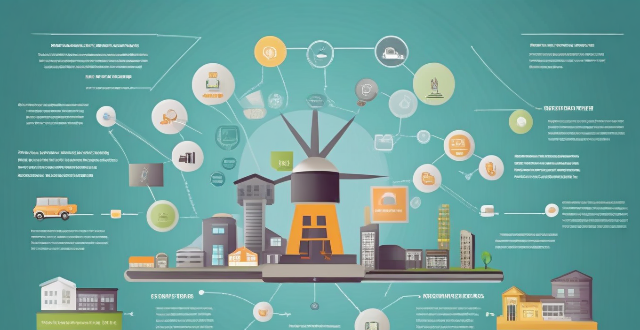
What impact does energy transition have on employment and job creation ?
The energy transition from fossil fuels to renewable sources significantly impacts job creation and employment. This shift brings growth in renewable energy sectors, green economy expansion, research & development, infrastructure development, and energy efficiency services. However, it also causes employment shifts such as a decline in fossil fuel industries, skill transition, geographical impact, supply chain effects, and policy-driven changes. Managing these challenges through strategies like reskilling programs and supportive policies is crucial for a just and equitable energy future.

How does climate change influence job security in coastal regions ?
Climate change significantly impacts job security in coastal regions through direct effects such as sea level rise, increased storm intensity, and changes in ocean temperatures. These environmental changes directly affect industries like fishing, tourism, agriculture, and infrastructure, leading to job losses or reduced hours for employees. Indirectly, climate change can cause economic displacement, public health concerns, and policy changes that create new job opportunities while potentially reducing jobs in other sectors. Addressing these challenges requires coordinated efforts from various stakeholders to adapt to changing conditions and transition towards more resilient economic systems.
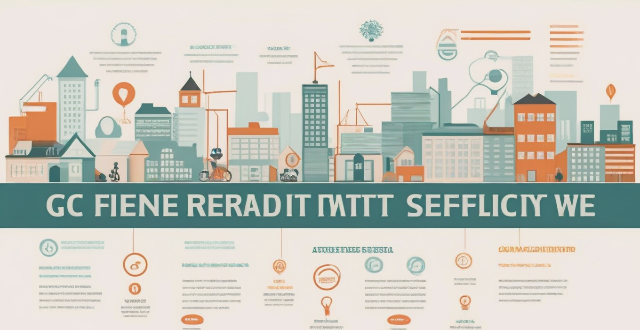
How do exercise programs impact employee productivity and job satisfaction ?
Exercise programs have a significant impact on employee productivity and job satisfaction. Companies can improve employee health, reduce stress levels, enhance team building, increase energy levels, improve mental clarity and cognitive function, reduce absenteeism and tardiness, enhance work-life balance, increase motivation and engagement, and improve company culture and retention rates by promoting a healthy lifestyle and providing opportunities for physical activity. Implementing exercise programs should be considered a valuable investment for any organization looking to improve its overall performance and success.

How has social distancing impacted the economy and job market ?
Social distancing measures have had a significant impact on the economy and job market, including decreased consumer spending, supply chain disruptions, high unemployment rates, increased demand for remote work, and changes in job seeking behavior.

How will AI impact the job market in the future ?
The impact of AI on the job market is multifaceted. While it brings opportunities for increased efficiency and novel professions, it also presents challenges related to job displacement, skill shifts, inequality, and the need for adaptive policies. The future of work in an AI-driven world will require a collaborative effort from individuals, businesses, and governments to navigate these changes effectively.

How does a sedentary lifestyle affect job productivity and overall health ?
This article discusses the negative impacts of a sedentary lifestyle on job productivity and overall health. It outlines how prolonged periods of sitting can lead to decreased energy levels, impaired cognitive function, and increased stress and anxiety in the workplace. It also highlights the increased risk of chronic diseases such as heart disease, diabetes, and obesity, as well as musculoskeletal issues and poor mental health associated with a sedentary lifestyle. The article concludes by emphasizing the importance of incorporating regular physical activity into daily routines and maintaining a healthy work-life balance to improve job performance and overall well-being.
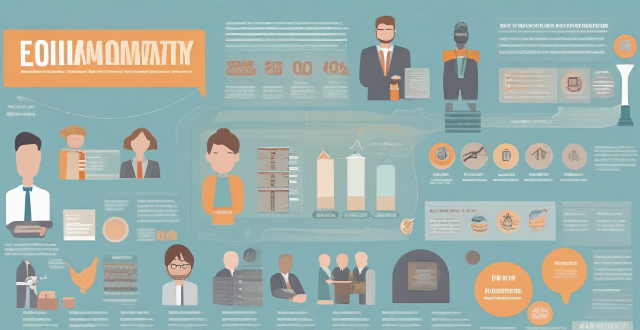
How does private equity impact job creation and retention ?
Private equity (PE) has a significant impact on job creation and retention, primarily through investing in underperforming companies, supporting startups and small businesses, and engaging in strategic acquisitions and mergers. PE firms also contribute to job retention by providing stable funding, investing in employee training programs, and participating in succession planning. While some argue that PE prioritizes short-term profits over long-term job growth, others contend that PE plays a crucial role in promoting economic stability and workforce development.
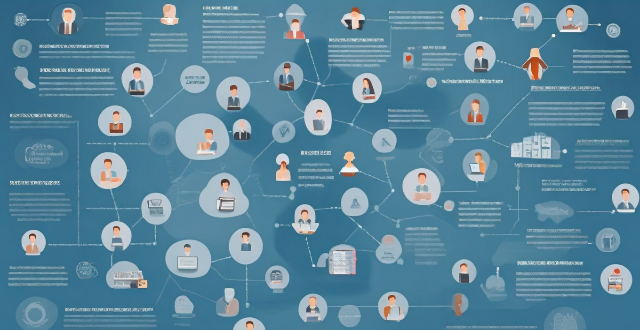
How might a lunar base influence the global economy and job market ?
The establishment of a lunar base could significantly impact the global economy and job market by increasing investment in space technology, creating new industries, driving innovation, and fostering international collaboration. It could also create numerous job opportunities and expand educational opportunities focused on space-related disciplines.

How does clean energy investment compare to traditional energy investment ?
Investing in energy sources is crucial for the development and growth of any economy. However, the choice between clean energy investment and traditional energy investment has become a significant topic of discussion in recent years. This comparison will explore the differences between these two types of investments, focusing on their costs, benefits, and potential impacts on the environment and society.

What are the job prospects for fitness instructors ?
The fitness industry is experiencing steady growth, driven byThe fitness industry is experiencing steady growth, driven by of regular exercise, rise in This growth has led to a rise in job opportunities for fitness instructors across various settings such as gyms, corporate wellness programs, community centers, and online platforms. Fitness instructors can also expect career growth through specialization, certification, management, or entrepreneurship. Overall, the job prospects for fitness instructors are promising with numerous opportunities for career advancement.

What are the economic implications of enacting stringent climate change legislation ?
The article discusses the economic implications of stringent climate change legislation, which include job creation in renewable energy and green infrastructure sectors, potential increases in energy and food prices, new business opportunities in innovation and carbon trading, and investment in clean technology leading to economic growth. However, there are also short-term transition costs and job displacement issues. Despite these challenges, the long-term benefits such as improved air quality and increased resilience against natural disasters make the implementation of such legislation beneficial for future generations.

How does a carbon tax impact the economy ?
**Impact of Carbon Tax on the Economy** 1. **Revenue Generation**: Increases government funds for public projects and welfare programs. 2. **Cost Pass-Through**: Businesses may increase prices, leading to inflation. 3. **Energy Efficiency**: Promotes investment in energy-efficient technologies, stimulating clean energy industries. 4. **Job Creation**: Creates jobs in clean energy sectors but can lead to job losses in fossil fuel-dependent industries. 5. **International Trade**: May affect competitiveness and increase imports from countries without carbon taxes. 6. **Environmental Benefits**: Mitigating climate change contributes to long-term economic stability.

How can we prepare for the changing job landscape in the future ?
The future job landscape is constantly evolving, and it's important to stay ahead of the curve. Here are some ways to prepare for the changing job landscape: 1. **Continuous Learning**: Upskill or reskill to remain relevant in the job market, take advantage of online courses, and attend workshops and seminars related to your field. 2. **Adaptability**: Embrace change, be open to new ideas, and be flexible in your job search. 3. **Networking**: Build professional relationships, attend events, join professional organizations, and connect with people on platforms like LinkedIn. Conduct informational interviews with professionals in your field. 4. **Technology Proficiency**: Stay tech-savvy and familiarize yourself with popular tools and software used in your industry. Consider learning basic coding skills. 5. **Personal Branding**: Establish an online presence through platforms like LinkedIn, Twitter, and personal websites. Showcase your expertise by publishing articles and participating in discussions. By focusing on these areas, you can position yourself for success in the ever-evolving job market.

How does Fintech influence the job market in the finance industry ?
The influence of fintech on the job market in the finance industry has led to the creation of new roles and changes in the skillset required for existing positions. Fintech companies have increased demand for software developers, data scientists, and cybersecurity experts. Additionally, specialized financial roles like fintech startup founders, regulatory compliance officers, and customer experience managers have emerged. Traditional finance roles such as bankers, accountants, and investment advisors now require proficiency in digital tools and an understanding of automation and data analytics. As technology continues to advance, the finance industry workforce will need to adapt continuously to stay relevant in the changing job market.
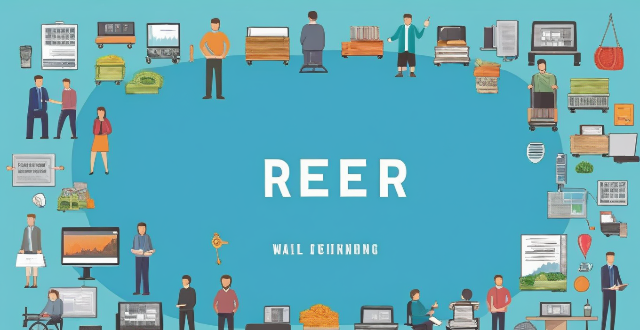
How can we ensure job security in an ever-changing employment landscape ?
In the ever-changing employment landscape, job security is a concern for many professionals. To maintain job security, strategies such as continuous learning, adaptability, networking, performance orientation, personal branding, career planning, financial planning, and mental health management are recommended. These approaches can help professionals stay relevant, demonstrate value, build a positive image, set clear goals, save for emergencies, manage stress, and seek support when needed. By implementing these strategies, individuals can increase their resilience and adaptability, enhancing their job security.
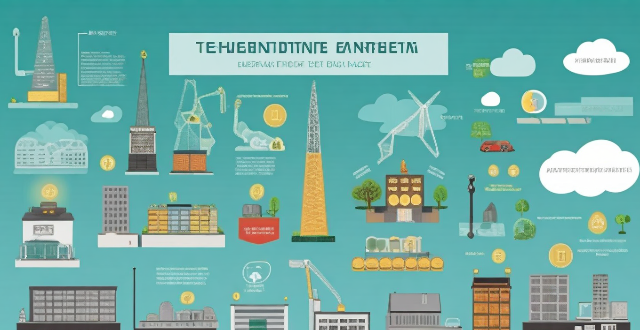
How is renewable energy affecting the traditional energy market ?
Renewable energy sources are having a significant impact on the traditional energy market, affecting pricing, market share, job creation, and environmental concerns. The increased efficiency and reduced installation costs of renewable technologies have made them more competitive with traditional energy sources, leading to declining electricity prices overall. Additionally, the growing demand for renewable energy sources has led to an increase in their market share, particularly for solar and wind power. The transition to renewable energy is also creating new job opportunities across various sectors of the economy, while addressing environmental concerns associated with fossil fuel consumption.

What are the benefits of investing in clean energy ?
Investing in clean energy offers benefits including reduction in greenhouse gas emissions, job creation, energy security, health benefits, and cost savings. It is a smart investment that aligns with our responsibility to protect the environment for future generations.
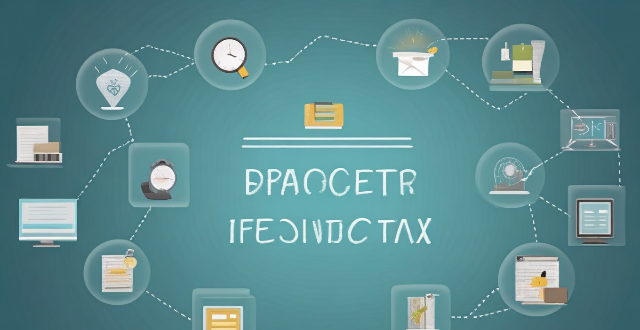
How does a carbon tax impact low-income households ?
The text discusses the impact of a carbon tax on low-income households, highlighting potential challenges such as increased cost of living and job losses, but also mentions mitigating factors like rebates and green job creation.

How do energy conservation and emission reduction policies impact the economy ?
Energy conservation and emission reduction policies have both positive and negative impacts on the economy. Positively, they create new jobs, promote innovation, improve public health, and enhance energy security. Negatively, they can increase operating costs for businesses, lead to job losses, slow down economic growth, and entail significant adjustment costs. It is crucial for policymakers to carefully consider these factors when designing and implementing sustainability initiatives.
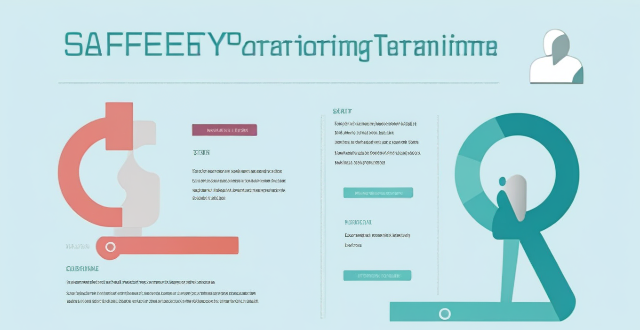
How can personal safety training be tailored to different risk levels and job roles within an organization ?
Personal safety training is crucial for protecting employees. Tailoring this training to different risk levels and job roles ensures that each employee receives the specific knowledge and skills needed for their work environment. This involves identifying risk levels, defining job roles, developing tailored training programs, incorporating practical exercises, and continuously updating and evaluating the training's effectiveness.
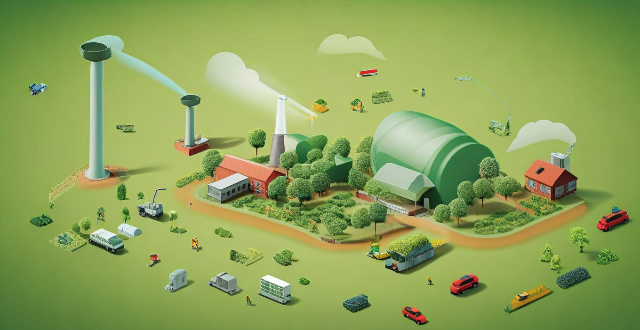
How does clean energy investment impact the environment ?
Clean energy investment positively affects the environment in various ways, including reducing greenhouse gas emissions, conserving natural resources, improving air quality, promoting sustainable practices, and enhancing long-term energy security. These efforts help mitigate climate change, protect ecosystems, reduce pollutants, encourage innovation and job creation, and stabilize energy prices. As environmental challenges persist, prioritizing clean energy investment is crucial for the planet's health and future generations.
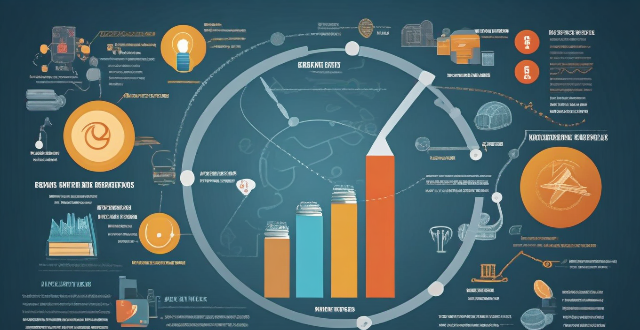
What are the benefits of using renewable energy sources for improving energy efficiency ?
Renewable energy sources offer multiple benefits, includingRenewable energy sources offer multiple benefits, including improved air quality, cost savings Renewable energy also provides stable energy prices and reduces dependence on imported fossil fuels, leading to greater energy security. Additionally, the development and deployment of renewable energy technologies create jobs and drive innovation and research in new technologies. Overall, investing in renewable energy is crucial for a sustainable future.
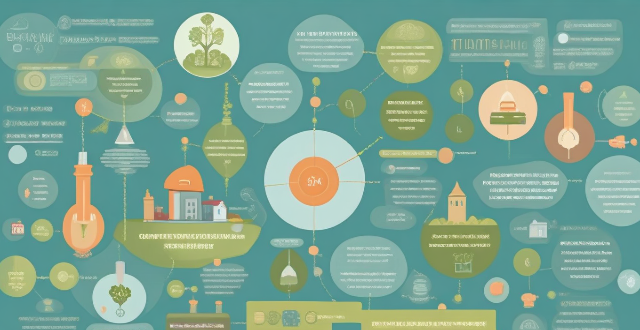
What impact does climate change legislation have on renewable energy development ?
Climate change legislation significantly influences renewable energy development by providing financial incentives, establishing mandated targets, supporting research and infrastructure, creating consumer awareness, fostering international cooperation, implementing regulations, setting environmental standards, and promoting economic growth through job creation. These measures collectively drive the energy sector towards sustainability and a low-carbon future.

What is the role of government in setting building energy efficiency standards ?
The role of government in setting building energy efficiency standards is crucial for promoting sustainable development, reducing energy costs, improving public health, driving innovation and technology advancements, and creating job opportunities. By working together with industry stakeholders and the public, governments can help shape a more sustainable future for all.

How can governments promote green job creation ?
Governments can promote green job creation by investing in renewable energy, encouraging energy efficiency, developing green infrastructure, supporting education and training, and creating market incentives. This includes offering financial incentives for renewable energy investments, implementing stricter building codes, funding public transportation systems, partnering with educational institutions for skill development, and implementing a carbon tax or cap-and-trade system. These actions will not only create jobs in the sustainable sector but also contribute to a more sustainable economy and a healthier planet.

What are the economic impacts of implementing renewable energy policies ?
Renewable energy policies have both positive and negative economic impacts, including job creation, energy cost savings, reduced emissions, higher upfront costs, intermittency issues, and land use concerns. As we transition towards a more sustainable future, it will be important to carefully consider these impacts and work towards finding solutions that balance environmental goals with economic realities.